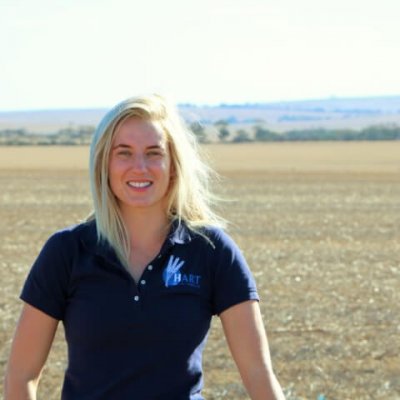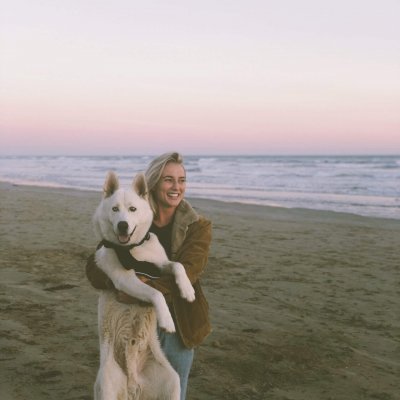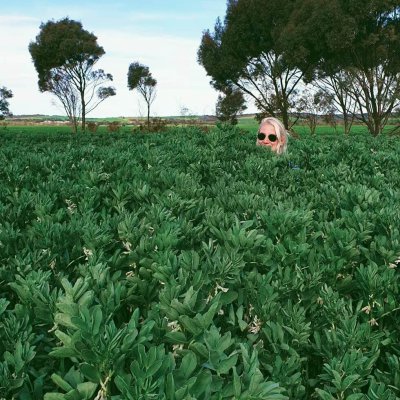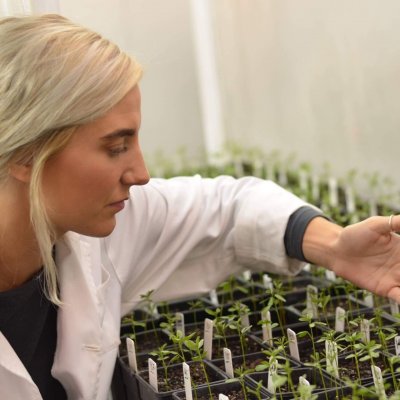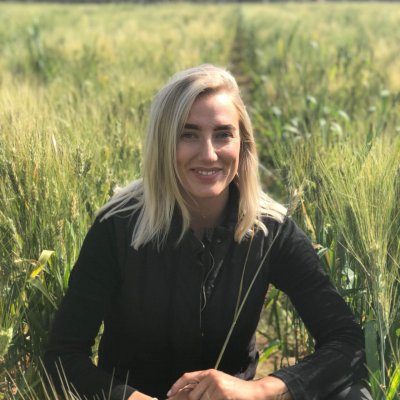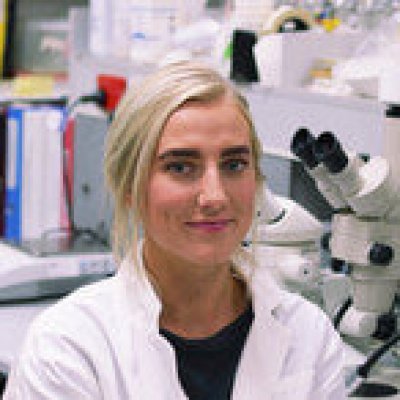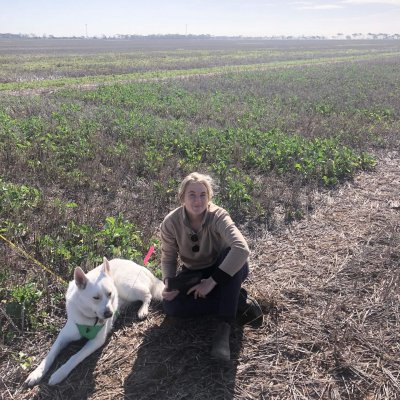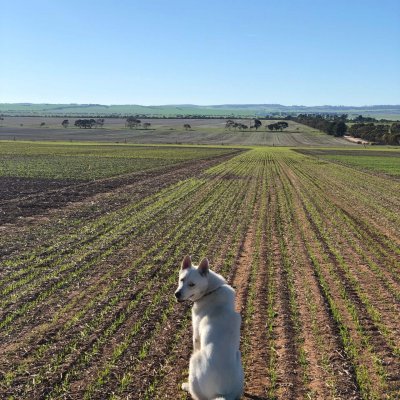Growing up in Macclesfield in South Australia’s Adelaide Hills, Jade always dreamt of being a scientist but was often dismissed as ‘just a blonde girl’. Hardworking and resilient, she has since forged an impressive career in agricultural research. It’s no small achievement – she worked up to 30 hours a week while studying for not one, but two Bachelor degrees – one in Environmental Policy and Management and the other in Science (Soil Science and Ecology) – along with an Honours in Plant Pathology. She then dove straight into an internship with the Hart Field-Site Group, where she gained a deeper understanding of both farming and rural communities. In 2018, she was the recipient of the SARDI Science Bursary for Women and she’s now working towards a PhD on grains research, while pursuing her career in agriculture as a Research Scientist. Passionate about bridging the gap from paddock to plate, she encourages rural women to find the confidence to believe in themselves, and is happiest when spending time in nature, with her dog Winston, or connecting with the people in her life – especially over a coffee or a wine.
When asked what concerned Jade about the health, safety and wellbeing of those in rural industries and communities, she raised the importance of taking care yourself both physically and mentally. “Looking after yourself is a huge deal and encompasses your physical and mental health,” she says, adding that being tired or unwell can lead to people not being as vigilant. “Remind them that the world won’t end if they need a break.” She also stressed that making time to do things that make you happy is essential.
How would you describe yourself in three words?
Hardworking, funny and resilient.
Tell us something interesting about yourself...
I grew up in Macclesfield, not exactly rural – but rural enough to have the space to breathe. I spent most of my childhood outside and have always had a huge passion for nature and the beautiful world we live in, particularly in sustaining the surrounding environment that we rely on.
I went to university (while working 20 to 30 hours a week to support myself) and studied for a Bachelor of Environmental Policy and Management, then a Bachelor of Science (Soil Science and Ecology) and then a Bachelor of Science Honours (Plant Pathology).
My passion for nature has turned into a passion for agricultural research that helps to make industry not only its best, but also as sustainable as it can be.
I would love to bridge the gap of knowledge in people, particularly younger generations, in understanding where we get our food from and just how much EFFORT goes into it (farming, the families etc).
Working rurally in the Mid-North for a year has taught me a huge amount about farming, farming families and the lovely, hardworking and resilient people who sustain the agricultural industry.
I hope to continue working in the agricultural industry to provide helpful research to farmers that is also applicable to their farming practices.
What achievements are you most proud of?
Being a research scientist! I always dreamt of being a scientist. Growing up as a blonde, slightly vague-seeming girl, I got the common “you’re blonde” comments and teachers/lecturers had less interest in pushing me into a career in science, let alone agriculture.
I’ve worked extremely hard to get where I am today. To actually be here and be respected by people in the industry is very rewarding.
What makes you truly happy?
My dog, Winston.
Nature – it truly is medicine for the mind.
Coffee and wine.
The great people in my life – from those I know well to those I come across briefly, and even general friendliness from strangers. People who lift others up, who inspire, support, love and care about others.
What do you love the most about being a rural woman?
The space, the community and the people. Everyone I’ve met on the land gives you their time – they talk to you, get to know you and listen.
Tell us about a time when you felt worried about your own or someone else’s health, safety or wellbeing.
There are two things that have huge impacts on people’s ability to do daily activities: being tired and mental health. Personally, I’ve had some near-misses from being tired or from just not being on top of my own health.
Looking after yourself is a huge deal and encompasses your physical and mental health. It’s also about seeking support from others when you need it and about noticing the signs in others when someone isn’t doing okay.
Also, remembering to put your seatbelt on even if you don’t wear it on the farm (yes, this is aimed at my partner!).
What practical things did - or could - you or someone else do to prevent yourself or someone else from getting hurt?
Remind them that the world won’t end if they need a break. Remind those around you to look after themselves in terms of sleep, nutrition, exercise and mental health, and to take a break from work so they can relax and turn off.
Remind them to do things that make them happy, even if it’s something small. I think this helps you do your job better, treat those around you better and live a better life.
"Remind those around you to look after themselves in terms of sleep, nutrition, exercise and mental health, and to take a break from work so they can relax and turn off."
Jade Rose, Macclesfield, South Australia AU Tweet this
Is there a time, place or scenario when your partner or those you work or spend time with are more willing to make changes to the way the work is done, or are more open to making safer, healthier choices?
Usually after a break when they’ve had time to think about life and reflect.
If you could give any advice to another rural woman about health, safety and/or wellbeing in rural industries and communities, about influencing change in business - or just in general - what would it be?
Believe in yourself and have confidence in what you do, and always be willing to learn from and listen to others. Also, always stand up for yourself and want the best for yourself.
